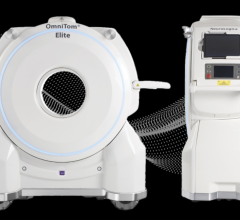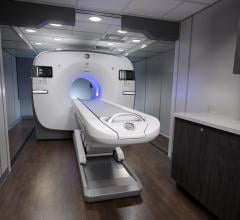

July 5, 2011 – The first radiopharmaceutical imaging agent to help physicians evaluate patients with suspected Parkinsonian syndromes (PS), such as Parkinson’s disease (PD), has been cleared by the U.S. Food and Drug Administration (FDA). GE Healthcare’s DaTscan (Ioflupane I 123 Injection) gives physicians diagnostic capability that may lead to timely, appropriate treatments for suspected PS patients.
“This is a major advance in the diagnostic imaging space. GE Healthcare personnel are working extremely closely with hospitals to ensure that these institutions have the proper facilities to handle and use DaTscan and that physicians are trained properly,” said Donald J. Quinn, vice president and general manager, GE Healthcare Medical Diagnostics.
DaTscan is a Drug Enforcement Administration (DEA) Schedule II controlled substance. Hospitals and nuclear imaging centers that administer DaTscan must have infrastructure dedicated to quality control, handling and dispensing of DEA Schedule II, radioactive drugs used for diagnosis and treatment.
“We have a thorough process in place to provide institutions with assistance in DEA-controlled substance registration, imaging equipment set-up and personnel training for radioactive drug handling and patient imaging protocols,” said Quinn.
Fifty thousand to sixty thousand new cases of PD are diagnosed in the United States each year, but an accurate diagnosis can take up to six years. Many people mistakenly attribute the first symptoms of PS, such as PD, to the normal aging process, and many have misconceptions about diagnosis. A recent survey by the National Parkinson Foundation found that 33 percent of Americans believe that a blood test can detect PD, while 30 percent did not know. Although doctors can run blood tests to help diagnose a number of conditions, they cannot diagnose PD based on the results of a blood test. Despite the unavailability of a simple test, DaTscan may be used as an adjunct to other clinical evaluations to assist in differentiating PS from conditions with similar symptoms, like essential tremor, in patients with suspected PS. DaTscan was not designed to differentiate between different forms of PS.
“A timely and correct diagnosis may help patients and their families overcome the fears and frustrations associated with the process of getting an accurate diagnosis so they can move on with their lives,” said Joyce Oberdorf, president and CEO, National Parkinson Foundation. "This new, innovative imaging agent is a big step in the right direction to be able to provide people with the right treatment and appropriate disease management.”
DaTscan may enable appropriate management for adult patients who have signs or symptoms of PS, by aiding timely, appropriate diagnosis. PS occurs when certain neuronal pathways in the brain are affected, including pathways involving dopamine. This affects the ability of the brain to control movement and other muscle functions. DaTscan is an adjunct to other diagnostic evaluations to help differentiate essential tremor (ET) – a common movement disorder – from tremors due to PS. The effectiveness of DaTscan as a screening or confirmatory test and for monitoring disease progression or response to therapy has not been established.
According to the World Health Organization, up to 25 percent of neurodegenerative movement disorders are misdiagnosed. Movement disorders are primarily diagnosed through clinical examination. Clinical exams alone, particularly early in the disease, are often inconclusive and can result in misdiagnosis. Movement disorders often have similar symptoms and the treatments can vary significantly. Inappropriate treatment can adversely affect patients’ quality of life. DaTscan is an additional diagnostic imaging tool that may help expedite an accurate diagnosis, which could improve disease management and ensure the use of appropriate medications.
DaTscan is only available with a prescription from a doctor. Patients should discuss their symptoms with their primary care physician to determine the best course of treatment.
For more information: www.gehealthcare.com, www.datscan.com



 July 30, 2024
July 30, 2024 








